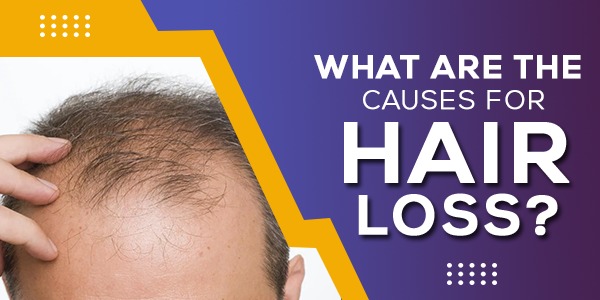1).Nutritional Deficiencies
Are you getting enough Vitamin D? Maintaining proper vitamin D levels is one of the 70 habits featured in my e-book 70 Powerful Hair Loss Habits For A Great Health which will guide you how to take positive steps to improve your wellness and overall health.
One of the symptoms of vitamin D deficiency is hair loss. In order to up your intake of vitamin D, get out more! Lack of exposure to the sun’s rays almost guarantees you to become vitamin deficient. However, if where you live, the weather is awfully cold and rainy, then you can supplement your vitamin D intake with a supplement. Read more about vitamin D in my article about the 12 common diseases caused by vitamin D deficiency.
Deficiencies of the amino acid lysine, copper, and zinc, may also cause hair loss. Also, make sure that you are getting enough protein. Hair stands are composed of protein, but if you not consuming enough of it, the body is clever and will divert its use from making hair to sustaining more necessary bodily functions. If you are not a meat eater, you can read my article about 13 Surprising Sources of meat-free protein. Also, read my article about 5 essential nutrients you may be missing from your diet.
2) Physical Stress
Any kind of physical traumasurgery, a car accident, or a severe illness, even the flucan cause temporary hair loss. This can trigger a type of hair loss called telogen effluvium. Hair has a programmed life cycle: a growth phase, rest phase and shedding phase. “When you have a really stressful event, it can shock the hair cycle, (pushing) more hair into the shedding phase,” explains Marc Glashofer, MD, a dermatologist in New York City. Hair loss often becomes noticeable three-to-six months after the trauma.
3)Lack Of Protein
If you don’t get enough protein in your diet, your body may ration protein by shutting down hair growth, according to the American Academy of Dermatology. This can happen about two to three months after a drop in protein intake, they say.
4)Male Pattern Baldness
About two out of three men experience hair loss by age 60, and most of the time it’s due to male pattern baldness. This type of hair loss, caused by a combo of genes and male sex hormones, usually follows a classic pattern in which the hair recedes at the temples, leaving an M-shaped hairline.
5)Heredity
Female-pattern hair loss, called androgenic or androgenetic alopecia, is basically the female version of male pattern baldness. “If you come from a family where women started to have hair loss at a certain age, then you might be more prone to it,” says Dr. Glashofer. Unlike men, women don’t tend to have a receding hairline, instead, their part may widen and they may have noticeable thinning of hair.
6)Female Hormones
Just as pregnancy hormone changes can cause hair loss, so can switching or going off birth-control pills. This can also cause telogen effluvium, and it may be more likely if you have a family history of hair loss. The change in the hormonal balance that occurs at menopause may also have the same result. “The androgen (male hormone) receptors on the scalp becoming activated,” explains Mark Hammonds, MD, a dermatologist with Scott & White Clinic in Round Rock, Texas. “The hair follicles will miniaturize and then you start to lose more hair.”
7)Emotional Stress
Emotional stress is less likely to cause hair loss than physical stress, but it can happen, for instance, in the case of divorce, after the death of a loved one, or while caring for an aging parent. More often, though, emotional stress won’t actually precipitate the hair loss. It will exacerbate a problem that’s already there, says Dr. Glashofer.
8)Overstyling
Vigorous styling and hair treatments over the years can cause your hair to fall out. Examples of extreme styling include tight braids, hair weaves or cornrows as well as chemical relaxers to straighten your hair, hot-oil treatments or any kind of harsh chemicals or high heat. Because these practices can actually affect the hair root, your hair might not grow back.
9)Side Effect Of Cancer Treatments
It is well known that both chemo and radiation therapy causes dramatic hair loss treatment in Raipur . While the treatment kills cancer cells, it also damages the hair follicles. However, the hair loss is usually short-lived and hair grows back after the course of treatment has finished.

